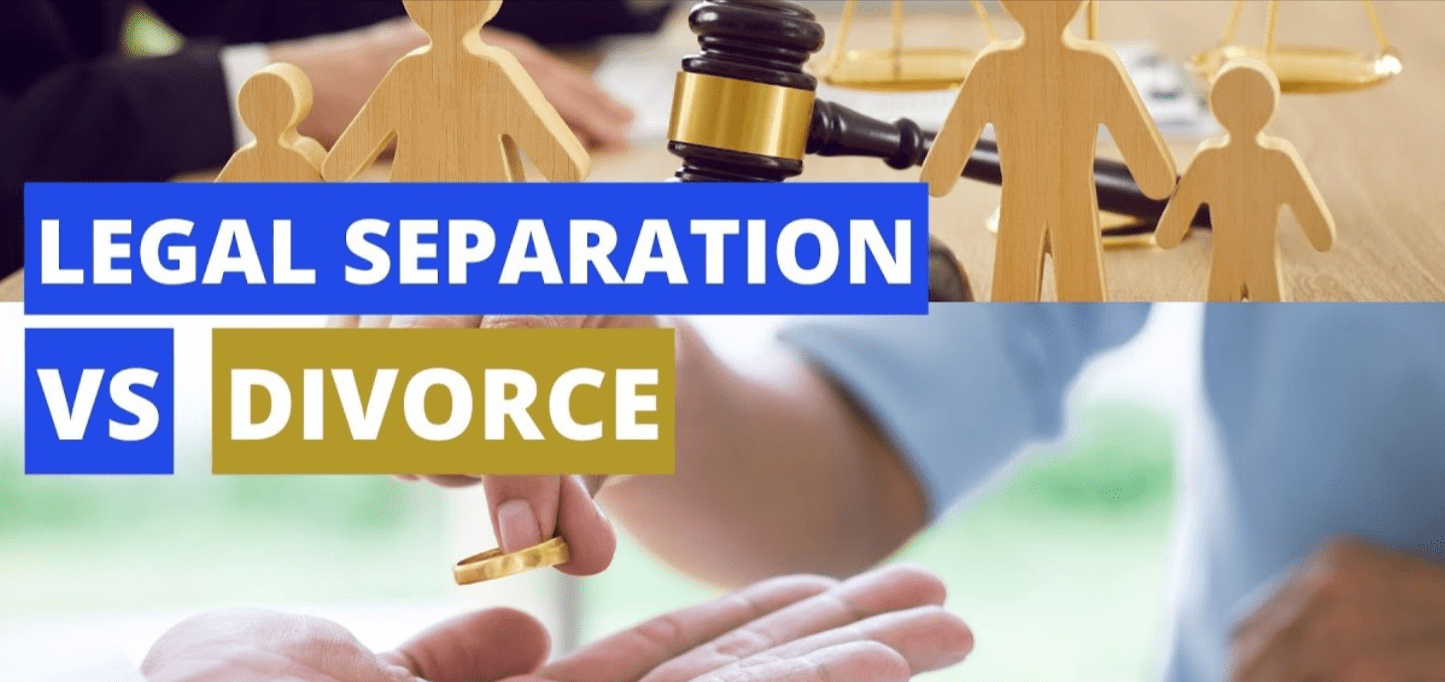When a marriage begins to break down, couples often find themselves facing difficult choices. One of the most common decisions is whether to legally separate or proceed with a divorce. While both options involve living apart and ending the relationship, they are not the same from a legal standpoint.
Understanding the differences between legal separation and divorce can help individuals make informed decisions that suit their personal and financial needs. Many people in Australia are surprised to learn that “legal separation” is not a formal legal process in the way divorce is.
What Is Legal Separation?
In Australia, the law does not formally recognise “legal separation” as a specific legal status like in some other countries. However, couples can live separately and apart while remaining legally married. This is what people usually mean when they say they are legally separated.
A legal separation typically involves one or both spouses moving out or living separately under the same roof with the intention of ending the relationship. To file for divorce in Australia, you must be separated for at least 12 months, which can include a period of separation while still living in the same home.
During a separation, couples can make important decisions about finances, parenting, and living arrangements. These agreements can be made informally or formalised through legal documents such as parenting plans, binding financial agreements, or consent orders. This is why it’s important to seek advice from experienced family lawyers who can guide you through the correct steps.
What Is Divorce?
Divorce is the legal end of a marriage. In Australia, divorce is handled by the Federal Circuit and Family Court of Australia. To apply for a divorce, the couple must have been separated for at least 12 months and there must be no reasonable chance of reconciliation.
Unlike separation, divorce has legal consequences. Once granted, it legally dissolves the marriage, allowing both parties to remarry if they choose. Divorce also triggers certain time limits, such as the 12-month period to apply for a property settlement or spousal maintenance.
Because divorce involves legal proceedings, many people choose to consult family lawyers to ensure their rights are protected and all legal requirements are met.
Key Differences Between Legal Separation and Divorce
Marital Status
A separated couple is still legally married, while a divorced couple is not. Legal separation allows for time and space while keeping the marriage intact. Divorce formally ends the marriage in the eyes of the law.
Legal Process
There is no formal legal process to become “legally separated” in Australia. Separation is more of a personal decision and may involve legal documentation only when issues like property division or parenting need to be addressed. Divorce, on the other hand, requires a formal court application and a legal process.
Financial and Property Matters
Both separation and divorce may involve the division of property and financial resources. However, it’s important to note that you don’t need to be divorced to settle property or spousal maintenance matters. You can do this during separation. That said, once a divorce is finalised, a 12-month time limit starts for making an application to the court about financial matters.
Getting support from family lawyers can help ensure that property settlements are fair and legally binding, whether you’re separated or divorced.
Parenting Arrangements
Parenting arrangements can be agreed upon during either separation or after divorce. The court encourages separated parents to focus on the best interests of the children by creating parenting plans or applying for consent orders. These arrangements are not affected by whether the parents are separated or divorced.
Emotional and Practical Considerations
Some couples choose separation over divorce for personal or religious reasons. Separation allows couples to take a step back and assess their relationship without permanently ending the marriage. It can also offer time to organise finances, parenting, and future plans before moving to a divorce.
Others may opt for divorce to gain clarity, emotional closure, and freedom to remarry. Deciding between separation and divorce depends on the couple’s circumstances and long-term goals.
Why Legal Advice Matters
Whether you’re separating or divorcing, getting professional legal advice is essential. Many people mistakenly assume that informal agreements are enough, only to face legal complications later. Family lawyers can help you:
- Understand your legal rights and obligations
- Draft binding financial agreements or parenting plans
- Apply for court orders if necessary
- Ensure that all decisions are in line with family law principles
A lawyer can also help with practical steps such as updating your will, superannuation beneficiaries, and financial documents during or after separation.
When to Consider Divorce
If you and your spouse have been separated for at least 12 months and there is no chance of reconciliation, you may wish to file for divorce. You can apply alone or jointly, and the process is usually straightforward, especially if there are no disputes over property or children.
However, it is important to deal with property and financial matters before or soon after the divorce is finalised, due to the strict time limits involved.
Whatever path you choose, it’s important to make informed decisions and protect your interests. Consulting experienced family lawyers can help you understand your options and guide you through every step of the process with clarity and confidence.
